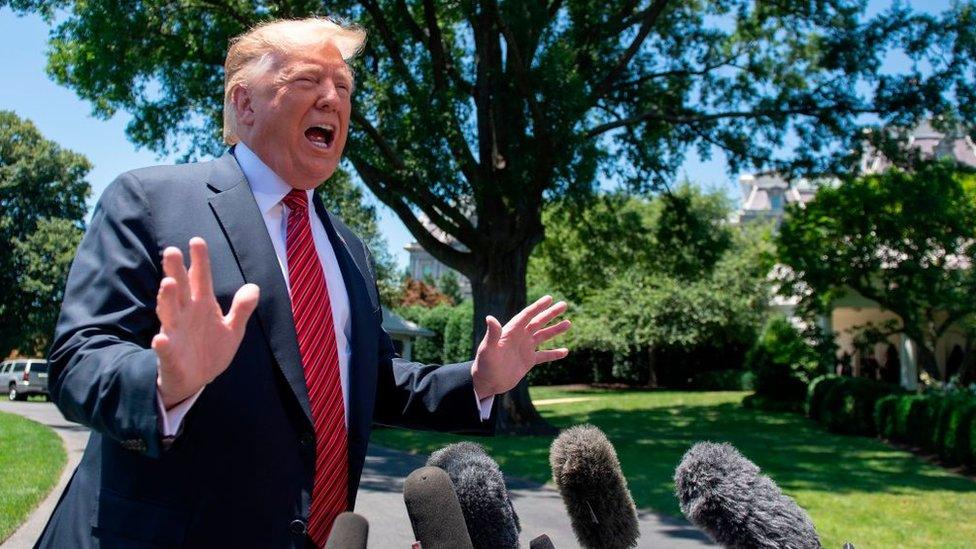Trump defends census citizenship question
- Published

US President Donald Trump has defended adding a citizenship question to the census after ordering documents that could shed light on the decision to be kept under wraps.
He said it would be "ridiculous" not to ask the question, but critics say it is racially motivated.
Democrats later voted to hold Trump administration officials in contempt for refusing to turn over the files.
A question on citizenship has not appeared on any US census since 1950.
The once-a-decade population count helps the US government draw up districts for state and local elections and guides the distribution of billions of dollars in federal funds.
What did President Trump say?
Asked about the matter at the White House on Wednesday, he told reporters: "When you have a census and you're not allowed to talk about whether or not somebody's a citizen or not, that doesn't sound so good to me.
"It's totally ridiculous that we would have a census without asking."
The Trump administration maintains that rather than being discriminatory, the question is needed to enforce 1965 Voting Rights Act protections for racial minorities.
The Republican president used his presidential powers on Wednesday to defy Congress, invoking executive privilege to withhold documents on why the citizenship question was added.
How did Democrats respond?
The Democratic-led House Oversight Committee voted 24-15 to hold Attorney General William Barr and Commerce Secretary Wilbur Ross in contempt for ignoring congressional legal orders demanding the material.
The panel chairman Elijah Cummings of Maryland said on Wednesday: "We must protect the integrity of the census and stand up for Congress' authority under the Constitution to conduct meaningful oversight."
His fellow Democrats on the committee said the census question was designed to suppress participation by racial minorities such as Latinos.
"Is it really about citizenship?" said Rashida Tlaib of Michigan. "No. It's about reducing the number of people of colour being counted in the census. That's exactly what it's about."
Why the controversy?
It was reported last month that the citizenship question was the brainchild of a top Republican political consultant who argued it would help his party politically.
Redistricting strategist Thomas Hofeller, who died last August, had concluded in a 2015 study that adding the question to the 2020 census would create an electoral advantage for Republicans and "non-Hispanic Whites" by gerrymandering constituencies.
The US Supreme Court is due to rule by the end of June whether the question violates federal law, after 18 US states sued.
But those behind the lawsuit said on Wednesday they want the justices to delay their ruling to allow judicial consideration of the Hofeller allegations.